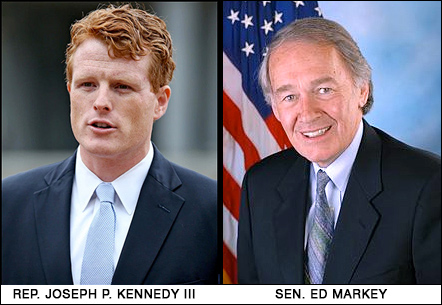By Jim Ellis
 June 4, 2020 — The June 2nd primary featured 10 states, and now the candidates are set for November. Below is a recap of the races from Tuesday’s primary that project as competitive this fall, and an early prognosis for each.
June 4, 2020 — The June 2nd primary featured 10 states, and now the candidates are set for November. Below is a recap of the races from Tuesday’s primary that project as competitive this fall, and an early prognosis for each.
IN-5:
• St. Sen Victoria Spartz (R) vs. Christina Hale (D)
Trump ’16: 53-41% | 2018 Congressional: 57-43% R (Brooks)
Ukrainian born state Senator Victoria Spartz topped a field of 15 Republican candidates with 41% on Tuesday night, after a nasty primary that resulted in some of the other contenders running ads touting that they were born in America. Democrat Christina Hale, a former state Representative and 2016 Lt. Governor nominee, had an easier time in her primary, and won with 39% of the vote, which was slightly under pre-election estimates.
Ms. Spartz is the favorite to win in November in a traditionally Republican district, but one that is moving more toward the center. Democrats will see how this race begins to unfold, but this is a seat on their secondary target list. We can expect Spartz to be tested early, and if the numbers suggest an opening, the Democrats will go for an upset win.
IOWA-SENATE:
• Sen. Joni Ernst (R) vs. Theresa Greenfield (D)
Trump ’16: 51-42% | 2016 US Senate: 60-36% R (Grassley)
Iowa is one of three Republican firewall states to keep the Senate majority, with Montana and Maine being the other two. Sen. Joni Ernst seeks her first re-election and is now paired with Des Moines real estate executive Theresa Greenfield. The Democratic establishment backed Greenfield, but she came under attack in the primary and defeated two opponents with 47% of the vote, a bit under pre-election projection.
All races in Iowa are competitive, so we can expect intense political competition here from the presidential race all the way through each of the state’s four House districts. Polling will show the Senate race as close until Election Day, but what should be another Trump victory here will help set the table for the remainder of the races. Sen. Ernst is rated as a slight favorite as the general election now officially begins.
IA-1:
• Rep. Abby Finkenauer (D) vs. St. Rep. Ashley Hinson (R)
Trump ’16: 49-45% | 2018 Congressional: 50-45% D
Freshman Rep. Abby Finkenauer (D-Dubuque) defends her seat for the first time and faces a top opponent in Republican state Rep. Ashley Hinson (R-Cedar Rapids), a former television news anchor. The 1st District looked to be the safest Democratic seat in the state after 2011 redistricting, but the electorate hasn’t voted that way. This will be a top tier Republican challenge race, and one to watch. Rep. Finkenauer certainly begins with the incumbent’s advantage, but the IA-1 campaign is a top national GOP target. If the Republicans are to have any chance of re-taking the House majority, Ms. Hinson will have to win.
IA-2:
• Rita Hart (D) vs. St. Sen. Marianette Miller-Meeks (R)
Trump ’16: 49-45% | 2018 Congressional: 54-42% D (Loebsack)
The 2nd District, located in Iowa’s southeastern sector, is the district that has played best for Democrats during the decade despite President Trump carrying it in 2016.
Democrats feature former state Senator and 2018 Lt. Governor nominee Rita Hart who was even unopposed in an open seat primary. Republicans counter with first-term state Senator Marianette Miller-Meeks (R-Ottumwa), who begins her fourth race for the congressional seat. Ms. Hart is the clear favorite here, and Dr. Miller-Meeks will have to prove her credibility nationally after three losses. If she does not begin the general election in competitive fashion, this race will quickly turn Ms. Hart’s way.
Continue reading



 May 11, 2020 — Many seasoned Massachusetts political observers believed that the intra-party Democratic US Senate battle between incumbent Ed Markey and Rep. Joseph P. Kennedy III (D-Newton) would never happen.
May 11, 2020 — Many seasoned Massachusetts political observers believed that the intra-party Democratic US Senate battle between incumbent Ed Markey and Rep. Joseph P. Kennedy III (D-Newton) would never happen. 